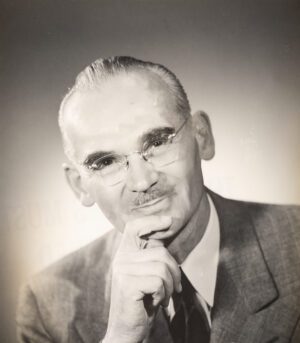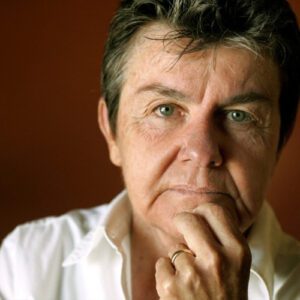I write here as someone with two special angles of vision on the poetry world. One comes from twenty-odd years as an editor—and three as sole editor—of the durable West Coast all-poetry magazine Blue Unicorn. This job entails constantly sampling, and choosing from, a hefty stream of submitted verse. The second is a lifetime of immersion in the critical ideas and teaching methods of Lawrence Hart, mentor of the so-called Activist Group of poets, and my father, who died in 1996. For a quarter century now I have been documenting, applying, and I hope extending these methods.
[Read more…] about Who is this guy and why is he talking?Anything at all?
Dan Chiasson, called “the country’s most visible poet-critic,” has put his finger on something, and it hurts.
Writing in a recent New Yorker about the poets of the so-called New York School, he remarks: “All at once, a generation of dazzling young people who had studied the canon in deadening classrooms remembered that poems could be, and always had been, anything at all—an invitation, an apology, a thank-you note, a recipe, a valentine.”
With these words he captures, and blesses, the revolution in taste that spread from several centers in the 1950s and 1960s and now holds the commanding heights of the poetry world (Chiasson has a prestigious professorship at Wellesley).
Maybe Chiasson is saying that a poem could be about anything? Fair enough. That goes back at least to Baudelaire. But can it really be anything?
Once upon a time a poem was more or less defined by sound: it was a rhymed, metrical, or otherwise stylized form. The Modernists drew the border between poetry and prose along another line. A poem, formal or not, should create a more intense experience than prose, achieved by a variety of means, and it should so from the first line to the last of anything called a “poem.” This demand created new problems for writers (and readers), which several generations labored with varying success to solve.
Then came mid-century, the era of the Beats, the New York School. and Black Mountain. These new leaders chucked both traditional and modernist criteria, leaving … what? “An invitation, an apology, a thank-you note, a recipe, a valentine.” Or, needless to say, a political or social commentary.
The word “poetry” has become a title conferrable on any piece of language. It is a pedestal on which any verbal object can be placed.
This quiet redefinition might lead to a corresponding modesty. Yet these P words—poetry, poem, poetic—still have an aura. They are still terms of prestige. Poets—those who write their stuff with line breaks, and sometimes initial capitals—still wish to be regarded by definition as Artists, and of a superior sort.
An open door elitism
Somebody dropped the E-bomb. A submitter to Blue Unicorn—advised he would do better to try his luck elsewhere—accuses the magazine of being “elitist.” The jibe started me thinking about this whole question of elitism—and the quite different fact that there are elites.
Quality, after all, does count. We salute the pitcher with the most wins, the surgeon with the best outcomes, the lawyer whose arguments persuade, the climber who can actually make it up the route. In the arts, granted, it gets murkier, because the standards of judgment are constantly under debate. I may think recognition goes to the wrong people. But that doesn’t mean I’m against the recognition. Like the Biblical poor, the elites ye will have with ye always.
Elitism is something different. It’s the feeling, among those who have somehow made it, that very few people can, or even should, follow them into that state of grace. Some earlier writers I admire were outspoken in this view. “I’m asked if I think the universities stifle writers,” said Flannery O’Connor. “My opinion is that they don’t stifle enough of them.” “Art is rare and sacred and hard work, and there ought to be a wall of fire around it,” wrote Anthony Burgess. More recently, Kay Ryan has struck a similar note.
The contrarian tartness of these statements makes me smile, but I don’t agree with them. It’s not that there should be a wall of fire to overcome in attaining the highest level of any skill; it is just that there is such a wall. Some few may find their own way through it; why not give an assist to many more? Universities may or may not be doing a good job of helping people penetrate the wall, but it is all to the good that they try. If they try. My own experience, of the creative writing program at Princeton, gave me an early shot of skepticism about that.
Lawrence Hart, a poetry teacher unblessed by the academy, embodied a third way: not permissiveness, not exclusivity, but what you might call open door elitism. He demanded a great deal of his students, and criticized their work severely at times. But he adopted the principle that anyone who came to him had the potential to achieve mastery, and he threw himself into the effort to help them achieve it.
He once asked a student if she would be jealous if too many people joined the “elite” of really fine writers. The risk of this happening seems not very high, but such was truly this great teacher’s goal. The nonprofit organization named for Hart is dedicated to opening doors like the ones he found—to people selected only by their willingness to enter.
The ambition of Kay Ryan
I like Kay Ryan’s poems, some of them very much indeed. I also like her prose. In a field awash in positivity, she is sharp-eyed, sharp-tongued, and bracingly irreverent. I wish every aspiring poet would spend some time with her 2020 book of essays, Synthesizing Gravity.
Here she is, attending a session on “neglected poets” at an AWP conference: “I guess I shouldn’t have expected to like neglected poets since I don’t like many unneglected ones even.” She dares to be bored at a reading by W. S. Merwin. She is acerbic about the workshop world, speaking of “the great creative writing fungus.” When a young colleague gushes over a piece she wrote about becoming a poet, Ryan laments: “What in the world was my essay doing encouraging these ever-expanding fuzzy rings of literary mediocrity, deepening the dismal soup of helpful supportive writing environments?”
Well. Is there no such thing as a tough-minded and genuinely helpful writing circle? But Ryan has a more exalted group in mind.
She challenges us to orient ourselves, not by what contemporaries are doing and praising, but by the best that has been done. “I don’t want to be connected to poetry in an easy, fellowshipping way, but I do want to be connected in a way that will earn me the respect of the dead.” Again: “There, I’ve said it. I want the great masters to enjoy what I write. The noble dead are my readers, and if what I write might jostle them a little, if there were a tiny bit of scooting and shifting along the benches, this would be my thrill.”
Ambition! We need more of it.
I enjoy Ryan’s writings least where she grows more tolerant. I question her belief that there must be, in all poetry, stretches of lazier language. “Almost everything has to be packaging material. The job of almost all the words is to suspend the essential words, which cannot exist without some context. … Don’t we generally do that with poems we love, recall a phrase, or a line or two, exactly, nestled inside some vaguer rhythmic texture?” She adds modestly: “It’s the best I can usually do.”
If there was one distinctive demand of the Modernist era, it was to minimize that “packaging material” and to give, to almost every line, one or another kind of distinctive power. Ezra Pound preached this doctrine but didn’t practice it that often in his poetry. Kay Ryan does the reverse. At her frequent best, she delivers just the kind of consistent punch she is reluctant to demand.
The Poetry Deflation Test
When I am trying to gauge the strength of a poem—or a sequence of words that calls itself such—I sometimes try a simple test. Remove all its line breaks and other typographical devices, and see how it reads when formatted as prose. I find this sobering in assessing my own efforts, and revealing when applied to poetry in general.
The words look different when viewed this way. Some texts show themselves to be perfectly good prose essays or short-short stories. Some are exposed as just rather boring. And some, of course, seem ill at ease in the format, wanting more room to breathe.
Yet the deflation or crumpling doesn’t kill any live poem. It doesn’t essentially alter the working of the words. Strong images remain strong. Striking turns of phrase remain striking. Even meter and rhyme will assert themselves, perhaps subliminally, without the reinforcement of conventional layout.
Our usual way of presenting poems on the page has two functions. The first is to accentuate, to smooth acceptance of, the beauties already evident in a prose arrangement. Some imagistic work is so dense that the reader needs a little pause, a catching of the breath, to appreciate it. Empirically, it seems that three or four meaty words—nouns, verbs, or modifiers that require a bit of brain action to assimilate—are about enough for a single line. Line breaks also help forms emerge from the background, and allow for playful variants like severe enjambement (such as breaking a single word between two lines, in the manner of e. e. cummings).
But the more common function of line breaks, in today’s poetry, is simply advertisement. It is to place the words in a kind of frame or on a kind of pedestal. It is to stake a claim. This is important! This is deep! This merits leisurely attention! The claim may or may not be justified. Yet we have hypnotized ourselves into a kind of rapt acceptance of anything written in lines. My political discontent or trip to the grocery store gets an attentive audience if I have told it with line-breaks (or read it aloud, with expressive pauses, to a familiar type of hyper-supportive crowd).
I find poets I work with rather too focused on lineation, stanza structure, and the like. These, done well, are helpful adjuncts, no more. Critics of a certain kind, too, head straight for these formal elements. A favorite term-of-art is “enactment.” An enjambement in Milton’s Paradise Lost “enacts” Satan’s fall. A line cut in in a poem by Geoffrey Hill “maps urban and class division.” A half-line in Shakespeare “symbolizes Hamlet’s aborted vengeance.” Really? These are the perceptions of a zealous graduate student, not a reader who is responding to the poetry itself.
Try the deflation test on any of a thousand poems in major journals, and ask yourself just how much survives. Or apply it to some lines considered classic. Is there really much going on with certain famous verses by William Carlos Williams? Do we really care that much about Williams’s red wheelbarrow or refrigerated plums? I don’t, no matter how many anthologists tell me I should.
Is A.I. coming for the poets? Maybe it should.
Back in the 1970s, there was a primitive chat program called Racter. Rudimentary though it was, it had been given a sort of personality (“Excuse me a moment, I have to load some files”). Even then, people wondered if this was the beginning of a kind of robot assault on the beaches of language.
Today, with chatGPT, the question is being asked much more seriously. We see that artificial intelligence can produce a term paper that strings together, rather convincingly, a series of conventional word-clumps gleaned from human writers. A.I. can write prose just as badly as we do. When will it come for the poets?
It doesn’t take much fooling around with the tool to conclude: Not very soon. Asked to write a poem featuring “Jim,” “gull,” and “unemployed,” chatGPT comes back:
Alone by the sea, where waves gently sigh, Stands Jim with dreams 'neath the vast, open sky. Unemployed and adrift in life's endless spree, He finds solace and company in a lone seagull, free.
Well, okay, what if it’s asked to do some lines in the style of Emily Dickinson? Not much different:
In Emily's style, this verse does weave, A tale of woe, yet hope to retrieve. Through unemployment's bitter sting, A resilient heart takes to the wing.
Not even a dash or a mid-sentence capital letter? Really, this is no fun. Okay, let’s try e. e. cummings and specify free verse this time:
so let the gull cry let the unemployed wander through the maze of possibility and find a path to a new horizon.
Many poets—and artists in other fields—have poked the AI dragon and come away unimpressed. And reassured: no competition here! But aren’t they missing the point?
AI, in its present state of development, isn’t going to threaten human poetry. But maybe it could actually help us out a bit.
Further evolved, AI could imitate going modes just well enough to challenge us to write better. It could serve as a sort of sparring partner and silent critic. How hard could it be to teach it to write the ubiquitous, confessional prose-poem? How hard would it be to tell it to scatter words and lines across the page, in what some have called “typewriter gymnastics?” How hard would it be to charge it with the language of versified social protest or uplift?
So I’m kind of rooting for A.I. Maybe it will get subtle enough prod us a little. Maybe it will get good enough at writing bad poetry to make us think harder about what makes poetry good.
Maybe by showing us what poetry isn’t, A.I. will spur us to explore, more seriously than many are currently doing, what poetry is.
The Coronation of Rap
The eminent linguist and social critic John McWhorter has issued a diagnosis. Hip-hop, he says in a column in the New York Times (August 24, 2023), has become “America’s poetry.”
If McWhorter’s claim sounds challenging, it’s a familiar sort of challenge. Decade by decade, it seems, there are moves to rub out any border between popular song lyrics and poems—often in the attempt to make the latter a little less scary. I grew up with an anthology edited by Josephine Miles titled, simply, The Poem; it closed with some witty verses by Cole Porter. A little later there was the collection Beowulf to Beatles. Various singer-songwriters have dubbed themselves poets. And in 2016, a figure with a weaker claim than some others took home the ultimate recognition: Bob Dylan won his Nobel.
Outrageous? Not in principle. There is no legislated line between words set to music—or chanted on top of an insistent, dominating beat—and words that are not. The choruses in Greek tragedies were apparently sung. Opera librettos used to be versified. And lyrics gain some charm when they rhyme engagingly, toy with metaphor, or otherwise smuggle in poetic devices.
The question remains: how do the words stand up as words? Strip away the melody, harmony, sonic heartbeat, and what have you got left?
In the case of rap, quite a lot, McWhorter implies. Others do more than imply. “When all the club bangers have faded, when all the styles and videos are long forgotten, the words will remain,” writes academic Adam Bradley. Yale University Press has published a 900-page rap anthology; Jay-Z has a hefty collection all of his own.
By all means read these books. Once past the lively introductions, they are dreary.
In the cold light of the printed page, the subtleties some readers find in this verse (a squinting eye can find subtlety anywhere) disappear. The broken-backed rhymes that can seem clever when rapped have lost their feisty charm; the repetitive boasts and satirical jabs fall flat. The form is simply not meant to be absorbed in silence.
Unlikely though the comparison may seem, I think of Richard Wagner’s librettos. As a young opera buff, I thought his texts might be good poetry in German, as they certainly were not in the English versions I saw. It took a couple of years of learning the language to teach me otherwise. Wagner’s stories are fascinating, his music often sublime. His words, a few passages excepted, are not.
Of course, McWhorter is not precisely assessing the qualities of rap and of hip-hop culture in general. He is simply observing their dominance. But that’s another conversation.





